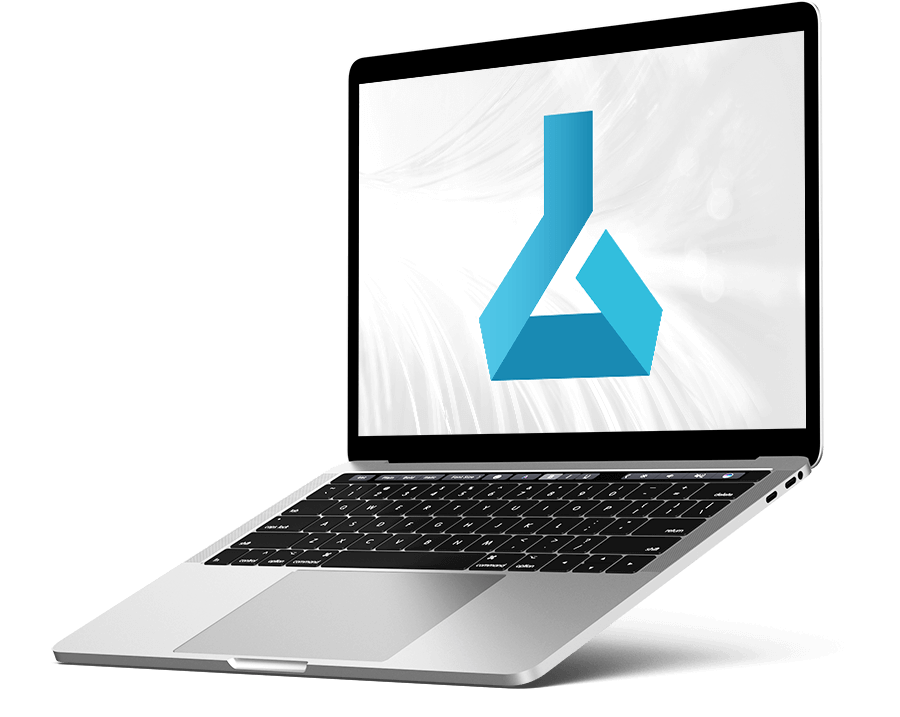
★ ★ ★ ★ ★ 4.9 Client Rated
TRUSTED BY THE WORLD’S MOST ICONIC COMPANIES.
★ ★ ★ ★ ★ 4.9 Client Rated

We provide end-to-end migration services to transition your data center to Microsoft Azure. Our experts work with you to develop a customized cloud strategy, ensuring a smooth migration process that minimizes downtime and aligns with your growth objectives.
With Azure’s vast range of computing, storage, and networking options, we design scalable infrastructures to accommodate your evolving business needs. From virtual machines to load balancing, we implement Azure solutions that ensure reliability, speed, and flexibility.
Coderio harnesses Azure’s powerful analytics and database services to help you manage, store, and analyze your data efficiently. Whether working with big data, IoT streams, or advanced analytics, our solutions enable real-time insights and business intelligence across your data assets.
Security is critical to business operations, and our Azure security services ensure data protection and compliance with industry standards. From identity management to DDoS protection, we implement Azure’s security tools to safeguard your assets and maintain regulatory compliance.
Our DevOps solutions leverage Azure’s tools for project collaboration, automation, and continuous deployment. We streamline your development and operational processes, enabling faster time-to-market, efficient code management, and improved team productivity.

Ripley recognized the urgent need to modernize its Electronic Funds Transfer System (EFTS) to ensure seamless operations for its users in Chile and Peru. The existing system faced reliability issues, prompting Ripley to embark on a comprehensive overhaul. The objective was clear: to establish a robust and resilient EFTS that would consistently meet the evolving needs of customers in both countries.

Coca-Cola needed a solution to measure sentiment in comments, categorize themes, generate automated responses, and provide detailed reports by department. This approach would transform feedback data into a growth tool, promoting loyalty and continuous improvements in the business.

The project involved implementing a data Warehouse architecture with a specialized team experienced in the relevant tools.

Coca-Cola faced the challenge of accelerating and optimizing the creation of marketing promotions for its various products and campaigns. Coca-Cola was looking for a solution to improve efficiency, reduce design and copywriting time, and ensure consistency in brand voice. Additionally, the company sought a flexible, customizable platform that would allow the creation of high-quality content while maintaining consistency across campaigns.

Coca-Cola sought an intelligent customer segmentation system that could identify and analyze behavioral patterns across different market segments. The solution had to automatically adapt to new data, allowing for optimized marketing strategies and improved return on investment.

YellowPepper partnered with Coderio to bolster its development team across various projects associated with its FinTech solutions. This collaboration aimed to leverage our expertise and elite resources to enhance the efficiency and effectiveness of the YellowPepper team in evolving and developing their digital payments and transfer products.

Coca-Cola needed a predictive tool to anticipate customer churn and manage the risk of abandonment. The goal was to implement an early warning system to identify risk factors and proactively reduce churn rates, optimizing retention costs and maximizing customer lifetime value.

We are eager to learn about your business objectives, understand your tech requirements, and specific Azure ML needs.

We can assemble your team of experienced, timezone aligned, expert Azure ML developers within 7 days.

Our Azure ML developers can quickly onboard, integrate with your team, and add value from the first moment.
Azure Machine Learning (Azure ML) is Microsoft’s cloud-based platform for building, training, and deploying machine learning models at scale. Designed for data scientists, developers, and engineers, Azure ML offers a comprehensive suite of tools and services that simplify the machine learning lifecycle—from data preparation and model training to deployment and monitoring.
Azure ML integrates seamlessly with other Azure services, providing powerful capabilities such as automated machine learning, drag-and-drop model building, and advanced deep learning frameworks. With built-in support for open-source tools and frameworks like TensorFlow and PyTorch, Azure ML enables teams to accelerate AI development, optimize performance, and leverage the full potential of cloud computing for machine learning applications.

Azure ML provides a powerful, scalable platform for building and deploying machine learning models, making it a top choice for businesses looking to harness the potential of artificial intelligence. One of the main advantages of Azure ML is its flexibility; it supports a wide range of machine learning frameworks and languages, including Python, R, TensorFlow, and PyTorch, enabling data scientists and developers to work with the tools they prefer.
Another significant benefit of Azure ML is its streamlined integration with other Azure services, such as Azure Databricks, Azure SQL Database, and Power BI, which creates a cohesive environment for data analysis and model deployment. With features like automated machine learning and model interpretability, Azure ML simplifies complex processes, reduces development time, and allows businesses to quickly implement AI solutions that enhance decision-making, improve efficiency, and drive innovation.

Azure ML offers a highly scalable platform that can grow alongside your data and processing needs. With the power of cloud infrastructure, businesses can scale resources up or down as required, handling everything from small models to large-scale, data-intensive machine learning projects.
Azure ML supports the entire machine learning lifecycle, from data preparation and model training to deployment and monitoring. This comprehensive approach simplifies workflows, allowing teams to manage every stage of model development in one place.
Azure ML integrates effortlessly with other Azure services such as Azure Databricks, Azure Data Lake, and Power BI, creating a cohesive ecosystem for data analysis and machine learning. This connectivity enables streamlined data processing, storage, and visualization.
Azure ML’s AutoML feature automates many complex machine learning tasks, such as model selection and hyperparameter tuning. This capability not only saves time but also allows businesses to achieve high-performing models without extensive manual adjustments, making machine learning accessible to a broader audience.
Built within Microsoft’s secure cloud infrastructure, Azure ML provides strong security measures and compliance with industry standards. With advanced access controls, data encryption, and regulatory compliance, businesses can trust Azure ML to protect sensitive information and meet stringent data protection requirements.
Azure ML enables businesses to create models that predict future outcomes, such as customer behavior, product demand, or financial performance. By analyzing historical data, predictive models provide valuable insights to drive proactive decision-making and strategic planning.
With support for deep learning and computer vision, Azure ML is ideal for developing models that process and analyze images and videos. These models can be used for tasks like object detection, facial recognition, and quality inspection in manufacturing.
Azure ML’s NLP capabilities allow businesses to analyze and understand human language, enabling applications such as sentiment analysis, chatbots, and language translation. This helps companies improve customer interactions and gain insights from textual data.
Azure ML can be used to develop models that detect unusual patterns or anomalies, which are often indicators of fraudulent activity. Financial institutions and e-commerce businesses, in particular, can benefit from real-time fraud detection, enhancing security and reducing financial risk.
Businesses can use Azure ML to build models that identify and segment customer groups based on behavior, demographics, or preferences. This segmentation enables personalized marketing strategies and helps enhance customer engagement and satisfaction.
Azure ML supports optimization models for supply chain management, inventory control, and workforce scheduling. By analyzing data and providing actionable insights, these models improve efficiency and reduce costs in operations and logistics.
Technologies that assist in cleaning, transforming, and preparing data for machine learning.
Libraries and frameworks supported by Azure ML for building and training models.
Tools for managing structured and unstructured data in Azure.
Solutions to deploy, monitor, and manage machine learning models in production.
Technologies that enable data visualization and business intelligence reporting.
Tools for automating and streamlining the ML lifecycle, from development to deployment.
PHP offers a wealth of pre-built tools and features that streamline development, making it especially suitable for projects like content management systems (CMS), e-commerce sites, and blogs. PHP’s architecture also supports easy integration with third-party applications, making it a practical choice for projects that need to interact with various external systems.
Python is known for its advanced capabilities in machine learning (ML) and artificial intelligence (AI), making it ideal for data-intensive projects. If your application requires deep analytics, robotics, or AI-driven functionalities, Python’s robust libraries and frameworks provide the tools needed for handling complex data operations and predictive models.
Both PHP and JavaScript are essential tools in web development, yet they serve distinct roles. The primary distinction lies in their usage: JavaScript is typically employed for front-end, client-side interactions, providing dynamic elements within the browser itself, while PHP operates on the server side, handling the backend processes of a website or application. Additionally, JavaScript executes directly within the user's browser, whereas PHP runs on the server, delivering processed data to the client.
We build high-performance software engineering teams better than everyone else.
Coderio specializes in Azure ML technology, delivering scalable and secure solutions for businesses of all sizes. Our skilled Azure ML developers have extensive experience in building modern applications, integrating complex systems, and migrating legacy platforms. We stay up to date with the latest Azure ML advancements to ensure your project is a success.
We have a dedicated team of Azure ML developers with deep expertise in creating custom, scalable applications across a range of industries. Our team is experienced in both backend and frontend development, enabling us to build solutions that are not only functional but also visually appealing and user-friendly.
No matter what you want to build with Azure ML, our tailored services provide the expertise to elevate your projects. We customize our approach to meet your needs, ensuring better collaboration and a higher-quality final product.
Our engineering practices were forged in the highest standards of our many Fortune 500 clients.
We can assemble your Azure ML development team within 7 days from the 10k pre-vetted engineers in our community. Our experienced, on-demand, ready talent will significantly accelerate your time to value.
We are big enough to solve your problems but small enough to really care for your success.
Our Guilds and Chapters ensure a shared knowledge base and systemic cross-pollination of ideas amongst all our engineers. Beyond their specific expertise, the knowledge and experience of the whole engineering team is always available to any individual developer.
We believe in transparency and close collaboration with our clients. From the initial planning stages through development and deployment, we keep you informed at every step. Your feedback is always welcome, and we ensure that the final product meets your specific business needs.
Beyond the specific software developers working on your project, our COO, CTO, Subject Matter Expert, and the Service Delivery Manager will also actively participate in adding expertise, oversight, ingenuity, and value.
Accelerate your software development with our on-demand nearshore engineering teams.